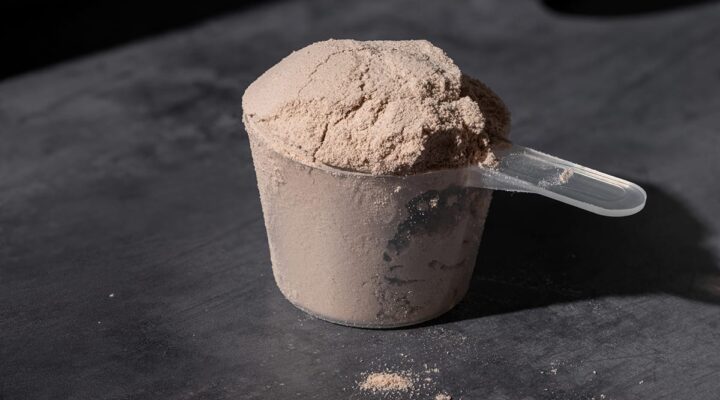Ask Dr Adam | Should My Parents Drink Protein Shakes?


Dear Dr Adam,
I come from an active family and my middle-aged parents still regularly work out at the gym, but, in my opinion, aren’t the most diligent with their nutrition. How can I convince them to factor in a protein shake after exercise?
Leah, Dulwich

Dear Leah,
First of all, I think it’s very nice that you want to support your parents’ training goals. There are indeed benefits to be had from post-workout protein as you get older.
As we age, we tend to experience increased muscle loss compared to our younger years. Our protein balance shifts as we get older and we have more muscle protein breakdown than buildup. That’s where we get the idea of age-related muscle wastage.
Does that mean we need more protein as we get older? Not necessarily, but if you’re looking to fuel muscle maintenance or growth through activity, then it’s likely. When we hit a certain age, though, it becomes not just about dose, but distribution.
“Where younger people can exercise and take in protein hours after their workout, older people could benefit from being more prompt”
There are some interesting ideas around how older people respond to exercise compared to younger people – particularly regarding resistance training. Studies have shown a greater impact on protein-feeding around exercise in older individuals. In other words, if you’re over 40 and you’re doing exercise – which in itself is a stimulus of protein synthesis – then in order to enable that synthesis you have more reliance on protein.
Where younger people can exercise and take in protein hours after their workout, older people could benefit from being more prompt, simply because you’re more able to maintain protein balance in your youth.
Bear in mind, though, that you can’t just take a huge hit of protein, particularly if you’re an older person, as your ability to digest and absorb protein has likely diminished as your gastric capacity becomes less sufficient.
Many also notice a decrease in their appetite as they get older, and so they end up eating less, and consequently, their protein consumption suffers. When you don’t eat protein, your body sources it from elsewhere i.e. in your existing muscles, so it’s important to ensure a steady intake throughout the day on top of any immediate post-workout consumption.
Overall the message for an older person isn’t necessary to have more protein in total, but a balanced distribution across the day and especially around exercise. So, Leah, you’ve hit upon something that is real and your father could certainly consider protein supplementation if he still trains regularly. By-and-large, though, it’s not about quantity, but how and when protein is delivered.
_
To have your nutrition questions answered by Dr Adam Collins, please email hello@formnutrition.com/us


















